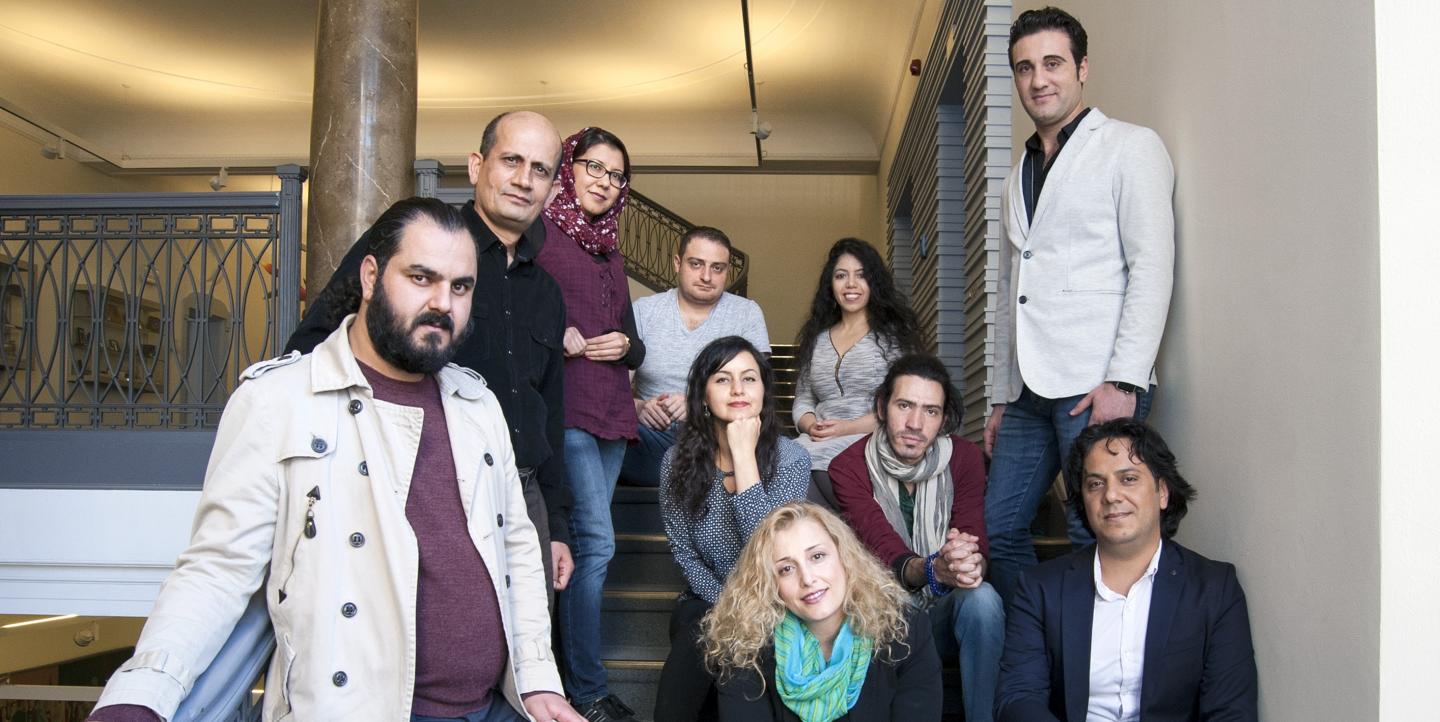Nearly one million Syrians, Iraqis and Afghans took refuge in Germany since 2012. The social integration of these newcomers is one of the main challenges the German society is currently facing. On the frontline of refugee integration efforts is Amal, an online publication that reports on German local news in Arabic and Persian.
Julia Gerlach, German journalist and managing editor of Amal, leads a team of eight staff reporters and several freelancers, all of whom came to Germany in recent years as refugees from countries such as Syria and Afghanistan. The goal of Amal, which is funded by the Evangelical Church in Germany, is to facilitate the integration of newcomers into society by offering them information they need in a language they can understand.
IJNet spoke to Gerlach — who co-founded Amal with her journalist sister Cornelia Gerlach — to learn more about how the news outlet started, what challenges the team has faced along the way and what role the publication plays in the German society.
IJNet: How and why did you create Amal?
Julia Gerlach: The idea came in 2015 when I returned to Germany after working as a correspondent in Egypt. Back then, there were all these Syrian refugees coming to Germany. We figured there are quite a few journalists among them, and that for these Syrian journalists, it would be especially difficult to find jobs here because of the language barrier. At the same time, there was a lot of misinformation being spread in the facilities that accommodated the refugees that were arriving — many rumors and conspiracies. We thought it would be a good idea to address these two challenges together by hiring refugee journalists to create journalism about what is important in Berlin and in Germany as a whole.
What is the focus of the Amal newsroom?
We do only local journalism, so we are not reporting on Syria, Iran, Afghanistan or any other country. It is important for us to stick to this principle because it keeps us away from the politics of refugees’ home countries. We are more trustworthy to our readers if we keep away from conflicts that exist in other parts of the world.
How does Amal benefit German society?
In order to participate in society you have to know what’s going on: where to go on the weekend to have fun, where to take your kids for outings, or what the mayor of Berlin is saying on certain topics. For example, [with] a topic like the headscarf debate (Berlin authorities barred primary school teachers from wearing religious symbols during class, Y.B.), which we recently reported about, it is important that moms and dads understand it so they know [how to discuss] it with their kids. If you want everybody to be a part of the society, you need to keep them informed. We want everybody to be a part of society because people who are not tend to have problems or make problems.
Research has shown that learning the local language is vital for refugees integrating into society. Isn’t it counterproductive to provide newcomers with information in their native language?
We would argue no, because when you come here it takes quite a while until you are able to read the newspaper. You should be able to participate in society before you can to read the newspaper. People feel more encouraged to integrate in society if they know where to go and how to participate.
How did you recruit and train your reporters?
We made a call for applications among refugees, and then we had interviews and chose the ten most qualified candidates. We only accepted people who had worked as journalists in their home countries or had training as journalists. We started with a two-month workshop in which we practiced how to do journalism in Germany, [answering questions such as] who do you need to call if you need specific info, what is the framework of the laws, how does the society function, how do you approach and talk to people and what are local customs and habits you should know? We also did a lot of team building because the people came from different countries and had diverse backgrounds and political or religious ideas. Getting them to work together was not always easy.
Many civil society projects that launched in response to the influx of refugees in 2015-2016 are now coming to an end, often because the funding stopped. Amal, however, just secured additional funding and is expanding to Hamburg. How did you accomplish this?
We convinced people that our project would be necessary in the future because the number of people in Germany who need information in Arabic or Farsi is not going to decrease in the coming years. This new funding allows us to expand to other German cities and open branches there. It is also very important for us to expand to the countryside.
Is the Amal model – refugees reporting local news for refugees – replicable in other countries?
Yes, I can imagine this kind of project can be replicated in Brussels or other cities where there are large numbers of newcomers.
Main image courtesy of Amal.

